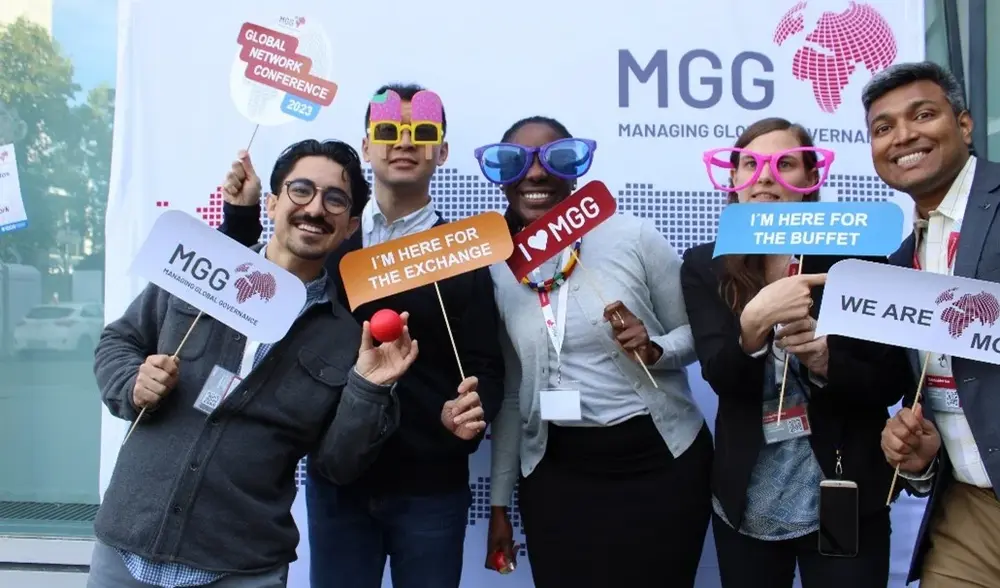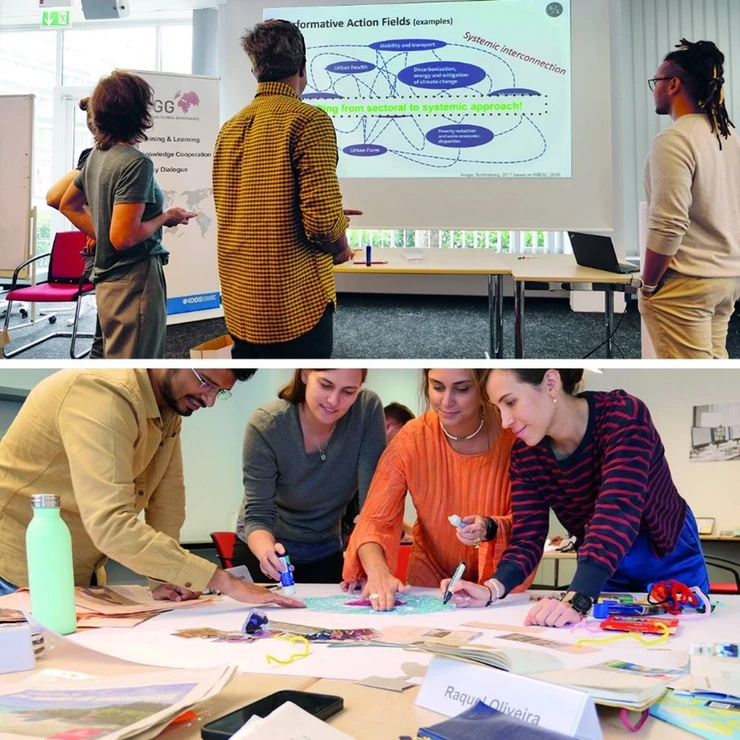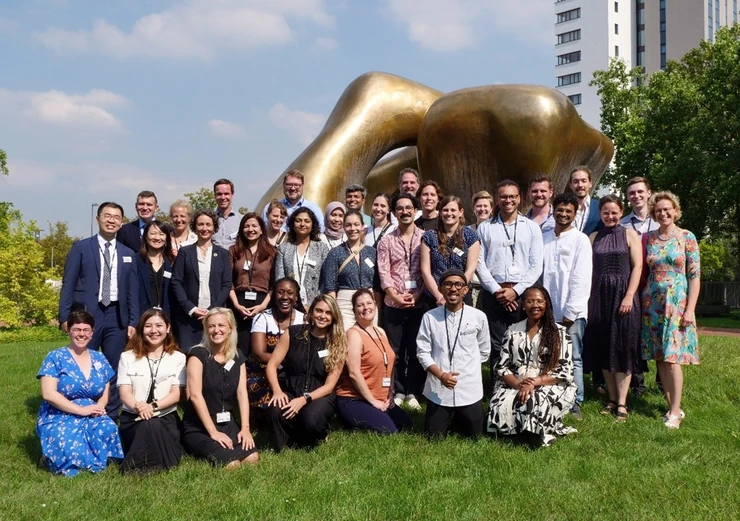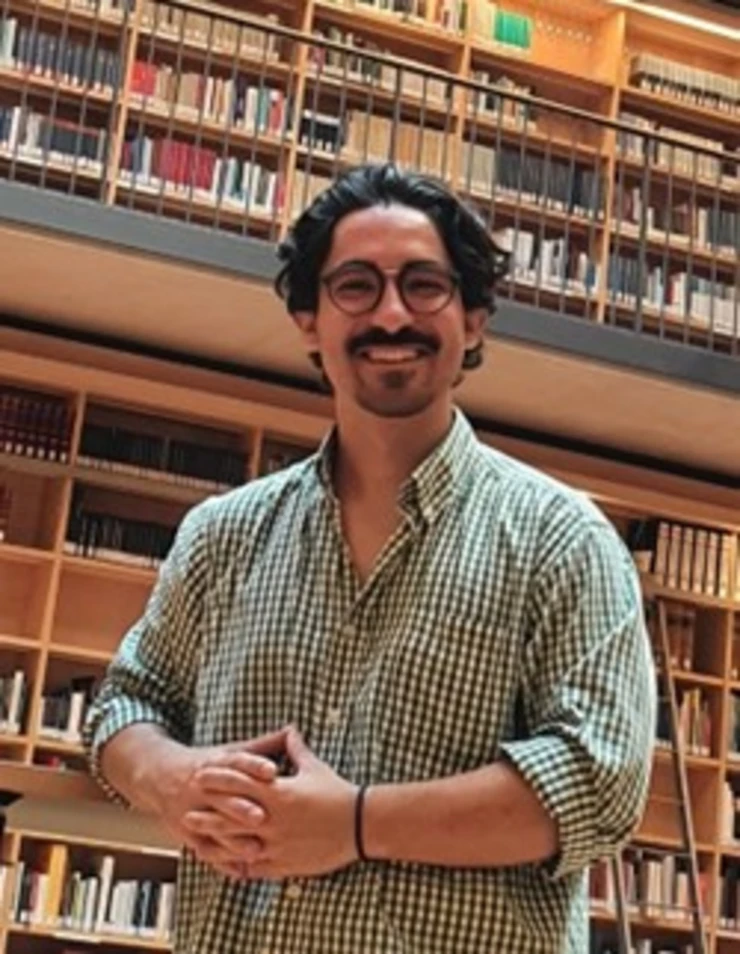Internship Postcard Series #5

MPP Student: Calep Pimienta
Location: Bonn, Germany
Institution: German Institute of Development and Sustainability (IDOS)
Every year, in what is now the former capital of Germany, the German Institute of Development and Sustainability (IDOS) receives experts from the public, private and social sectors for a total of four months to train and discuss global challenges and their alternative solutions through of international cooperation. They call this meeting of professionals from Brazil, Mexico, Indonesia, India, China, South Africa, and European countries the “Managing Global Governance Academy” or MGG.
The MGG is an academy that has been training agents of change for more than 15 years who, based on the holistic analysis of the system in which they are inserted, can find the links between the different systems that converge in our globalized world. The academy understands that the development of capabilities and competencies such as creativity, strategic design, reflexivity, communication, and conflict management are essential to establish a network of leaders who manage to influence their local context with a global view.

This year and generation of the academy was no exception. For three months I had the opportunity to work on the preparation of the MGG, reception of the participants and implementation of the first six weeks of the program, accompanied by an incredible team of coordinators: Tatjana Reiber, Judith Böckle and Ana Schwachula.
The work I did can be divided into two blocks: the preparations and the implementation. Firstly, the preparations involved an administrative effort on the one hand and an academic effort on the other. Being an academy where participants come to Germany to live for a few months, a set of information was prepared for them that contained the fundamentals (and a little more) to live in Germany, a guide that any “new guy in town” would envy.
Furthermore, their entry into Germany required the organization of their accommodation, means of transportation, travels and of course, visas. Although I was not directly and permanently involved in this topic, it was of great interest to understand the logistics involved in the planning of an international event that involves the coordination and work of agencies from more than five countries (in this aspect I greatly recognize and admire the effort of Jasmin Shrage and Jazmin Dietzcsh, student assistants with whom I shared the experience of working together).
Second, the calm of the office turned into constant movement when the participants arrived. At this point my job was to directly follow the participants' program in each session. We begin with tours of the city, the former German chancellery, the BMZ offices and, of course, the content sessions prepared by various professors and specialists on topics related to sustainable development, interdependence and development of the global south, global governance, multilateralism, among others.

The experience working at the MGG academy taught me that the construction of sustainable future scenarios is viable through interpersonal and cultural exchange. Knowledge itself is not the solution. Connecting with others, recognizing their reality, and learning from it, is how we make the knowledge become a tool of change available to all parties involved. I see that the MGG academy is looking for this, something quite simple, but so complex in a context of clashing perspectives. To open our minds to the exchange of ideas without judgments and impediments and to sustain cooperation that can build the change that our communities require.
About the Author

Calep Pimienta studied political science and public management at ITESO University. He is currently pursuing a master’s in public policy at Germany's Willy Brandt School. He previously led the network of NGO´s "Fuerza Ciudadana Anticorrupción," worked at Transversal think tank, and advised the Social Participation Committee of the State Anti-Corruption System in Jalisco.
~ The views represented in this blog post do not necessarily represent those of the Brandt School. ~